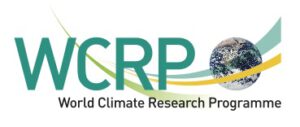The World Climate Research Programme is soliciting offers to host an International Project Office (IPO) to coordinate its cryospheric activities from 1st January 2019 onward.
Prospective host institutions and sponsoring organizations are invited to view and download the full call for hosting the CliC IPO from
Letters of intent to host the CliC IPO should be sent to Dr Mike Sparrow () by 1st September 2018.
Background information:
The Climate and Cryosphere Core Project (CliC) of the World Climate Research Programme (WCRP) serves as the focal point for climate science related to the cryosphere, its variability and change, and interaction with the broader climate system.
All WCRP IPOs, including CliC, will play a paramount role in refining and implementing WCRP’s upcoming 2019-2029 strategy, including their own strategic contributions to the programme.
CliC activities have resulted in a wealth of cutting-edge research, valuable data products, and innovative use of models to project changes in the Polar Regions and other frozen areas globally.
Past host institutions of the CliC office have consistently benefited from elevated international exposure as well as increased leverage in national and international funding and partnership opportunities. The CliC International Project Office can act as a focus for cryosphere research in its host institution and country and through its network, infrastructure and expertise, can facilitate international research collaboration.


